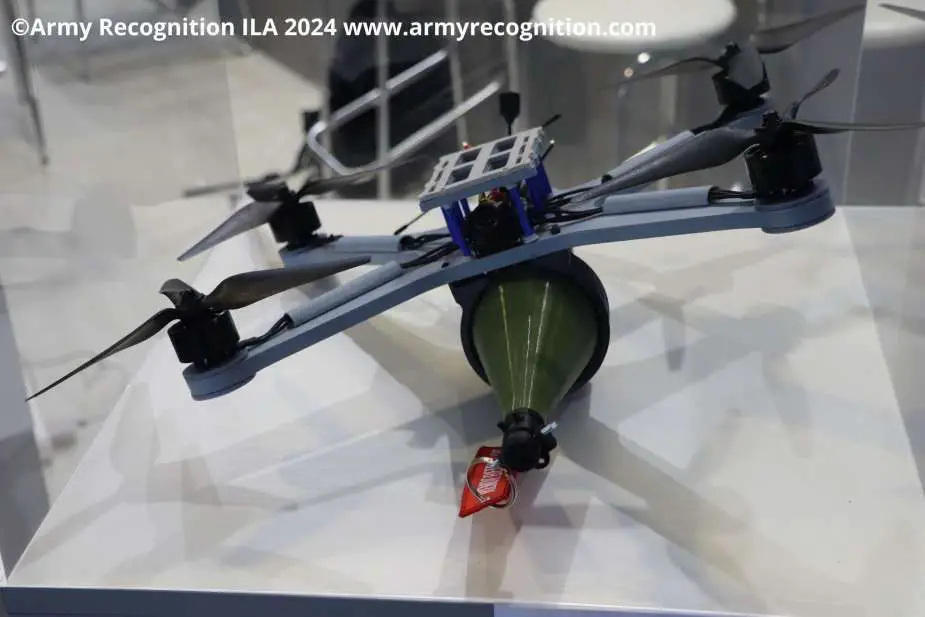Breaking News
Germany Approves Export of Maus Loitering Munition to Ukrainian Unit Kraken.
The German Ministry of Economics has officially granted approval for the arms company Donaustahl to manufacture and export FPV drones of the “Maus” type. The first customer for these advanced drones will be the Ukrainian drone unit Kraken. According to Donaustahl, the “Maus” system can be used for FPV kamikaze attacks with a warhead, for attacks against infantrymen, and in combat against tanks.
Follow Army Recognition on Google News at this link

The MAUS drone is a German-made modular loitering munition or kamikaze drone capable of precision attacks against infantry, tanks, and other targets, equipped with advanced IR and thermal imaging for day and night operations. (Picture source: Army Recognition Group)
The Kraken Regiment (Ukrainian: Спецпідрозділ «Kraken», romanized: Spetspidrozdil «Kraken») is a Ukrainian military volunteer unit, part of the Spetsnaz units of the Main Directorate of Intelligence of Ukraine (HUR). Formed in 2022 as a response to the Russian invasion of Ukraine, Kraken has become a key component in Ukraine's defense strategy.
The "Maus" drone system is recognized as the world's first adaptive loitering munition platform designed for both day and night operations, utilizing infrared and thermal imaging. This modular system is capable of performing a range of attack types. It can carry out FPV-kamikaze attacks using HEAT warheads, anti-infantry attacks with 30mm VOG, 40mm NATO, or 85mm Sonyashnyk munitions, and anti-material attacks with the Trench Cleaner. With an effective combat range of 5-7 km, a climb rate of 18-22 m/s, and a maximum payload of 2.7 kg, the "Maus" represents a versatile and effective solution for various combat scenarios.
The system also features a quick-click mechanism that allows it to switch between different effectors within seconds. Initial experiments integrating AI-supported recognition software are showing promising results, indicating further enhancements in the "Maus" system's operational capabilities.
Germany has significantly increased its military aid to Ukraine, reflecting its commitment to support Ukraine amid the ongoing conflict with Russia. In 2024, Germany has pledged to double its military aid to Ukraine, allocating €8 billion (approximately $8.5 billion) to this effort. This boost in aid comes in response to the rapid exhaustion of previously planned funds and aims to reinforce Ukraine's defense capabilities.
A substantial portion of this aid will be used to supply advanced military technology, including additional IRIS-T SLM air defense systems and artillery ammunition. Germany has also provided around €22 billion in total aid since the start of the conflict, encompassing humanitarian, financial, and military support.
The increased budget for military aid is part of Germany's broader strategy to meet NATO's defense spending targets and enhance its military contributions. This comprehensive support underscores Germany's role as one of Ukraine's principal backers in its struggle against Russian invasion.
























